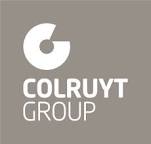Halle, Belgium, 2017-Jul-04 — /EPR Retail News/ — Colruyt Group has received its first complete report from the AB Register, the platform developed by non-profit association Belpork to set up a policy for more sustainable use of antibiotics in pig farming. The conclusions are most encouraging, both for data reporting and quantitative and qualitative analysis of antibiotic use in herds participating in the Colruyt quality system. Use of significantly lower than average doses of active substances has been noticed in particular. In 2015, Colruyt Group decided to include the AMCRA* recommendations in its specifications, with the aim of reducing antibiotic consumption in pig farming by 2020. At the same time, the group joined the AB Register, in order to raise farmers’ awareness and have a continuous control and monitoring of their consumption. Due to this commitment, the group is working, together with its suppliers, towards a sensible use of antibiotics.
The AB register
Developed on the initiative of Belpork, the “AB Register” wants to identify the use of antibiotics in Belgian pig farms affiliated to recognised quality systems (Certus, CodiplanPlus, Colruyt) in order to achieve a sustainable policy on antibiotics. For the scientific analysis of the register’s data, Belpork called in AMCRA*, the knowledge centre for everything concerning antibiotics use and bacteria resistance in animals. The recording and individual reporting on use of antibiotics is a measure aimed at raising the producers’ awareness. By joining this register, the latter benefit from follow-up and guidance in regard to their antibiotic consumption.
Encouraging results
Since Colruyt joined the AB Register in September 2015, the number of herds participating in the Colruyt quality system increased from 227 to 238 on 1st January 2017. 74% of these fulfilled the criteria enabling them to be taken into account in the assessment and analysis.
From a quantitative point of view, the report highlights the good behaviour of our suppliers’ farms, with an on average lower use of antibiotics than other farmers belonging to the register. There is a significant difference mainly in suckling piglets, as well as pigs for fattening.
From a qualitative point of view, it is also apparent that 3rd and 4th generation antibiotics, which are the most critical in combatting antibio-resistance in humans, have dropped considerably compared to 2015, currently reported as 0.9% treatment days, compared to 2% for herds which are not Colruyt affiliated. More generally, an overall decrease has been noted in the use of active substances belonging to “red” products in the AMCRA** classification.
Professor Jeroen Dewulf, chairman of AMCRA, calls the results encouraging. “It is good that companies like Colruyt Group take the lead and work together with their suppliers to reduce use of antibiotics and contribute to achieving AMCRA’s objectives.”
Evolving specifications
This is not the first time that Colruyt Group is taking action on the use of antibiotics in pig farming. In 1999, the group included, in its specification, banning the use of antibiotics as a preventive measure or to boost growth. A measure voted in by the European Union in 2006. Even today, the group has no reservations on going beyond legal requirements by extending the time between the end of a treatment and slaughtering the animal in order to ensure no significant quantities of residue remain in the animal’s flesh.
Stefan Goethaert, manager Colruyt Group Fine Food, the group’s production department: “We can be nothing but delighted with this report which shows that our supplier partners are right behind us in our sustainability goals. Combating over-use of antibiotics is a public health issue in which, through our specifications, we have a role to play. There is still work to be done and improvements to be made, in particular in data reporting. But we are on the right track. ”
* AMCRA: Antimicrobial Consumption and Resistance in Animals
** Antibiotic Classification
AMCRA has set up a colour code, according to the substances’ impact on human health. The yellow products are the least harmful in regard to public health; orange products can only be administered after a diagnosis, while red products may only be used after a laboratory test showing that the yellow and orange substances have no effect on the bacteria concerned.
Contact:
Silja Decock
Press Officer Colruyt Group
Tel.: +32 (0)473 92 45 10 or +32 (0)2 363 55 45
Email: silja.decock@colruytgroup.com
Source: Colruyt Group
